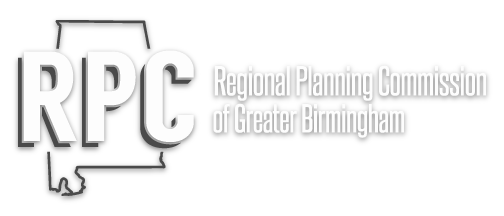US 280 Corridor Transit Study
Welcome to the website for the U.S. 280 Corridor Transit Study. The Regional Planning Commission of Greater Birmingham completed the study in October 2012. Here you will find the Executive Summary, Final Report, and Appendix, which can be downloaded by clicking on the following links:
The following video was produced to provide the public and project stakeholders with the “look and feel” of a premium transit service in at least one section of the corridor:
Here we aim to answer these questions:
Why was the U.S. 280 Corridor Transit Study performed and what is the relationship between the study recommendations and ALDOT’s proposed elevated roadway intersection improvement project?
What local jurisdictions are included in the U.S. 280 Corridor Transit Study?
What was the purpose of the U.S. 280 Corridor Transit Study?
Why was the U.S. 280 Corridor Transit Study performed and what is the relationship between the study recommendations and ALDOT’s proposed intersection improvement project?
This corridor was studied as a result of the Birmingham Regional Transportation Alternatives Analysis completed in 2004, which recommended that a detailed analysis of the U.S. 280 Corridor be performed to identify feasible transit options. This study was funded through a grant from the Federal Transit Administration (FTA) and it is a completely separate effort from any Alabama Department of Transportation’s (ALDOT) roadway improvement plans. ALDOT’s recently proposed intersection modifications should be considered short term improvements and will not conflict with the recommendation of this study which is to include a premium transit service in the corridor as part of a long term solution.
What local jurisdictions were included in the U.S. 280 Corridor Transit Study?
City of Birmingham
City of Homewood
City of Mountain Brook
City of Vestavia Hills
City of Hoover
Town of Chelsea
Town of Westover
Town of Harpersville
Jefferson County
Shelby County
What was the purpose of the U.S. 280 Corridor Transit Study?
The U.S. 280 Corridor has developed rapidly over the past 20 years, and in some places, it is the most congested roadway in the entire Birmingham metropolitan planning area. The study examined a range of public transportation alternatives to improve travel along U.S. 280. The study also provided an opportunity for local planners and decision-makers to work together on land development and redevelopment strategies to preserve the unique character of their communities, while improving transportation operations along U.S. 280.
A Stakeholder Advisory Committee was formed to assist the RPC in identifying and evaluating the potential for new transit services in the U.S. 280 Corridor from Downtown Birmingham to the Shelby-Talladega County line. Committee members represented city and county governments in the corridor, development community representatives, business organizations, and transportation agencies. The committee met several times during the study process. The committee members represented the following organizations:
City of Birmingham
City of Homewood
City of Mountain Brook
City of Vestavia Hills
City of Hoover
City of Westover
City of Chelsea
City of Harpersville
Jefferson County
Shelby County
Alabama DOT
Bayer Properties
Birmingham Business Alliance
Birmingham-Jefferson County Transit Authority
Brookwood Hospital
AIG Baker
Eddleman Properties
Federal Highway Administration – Alabama Division
Greater Shelby Chamber of Commerce
Horizon 280
Ladd Properties
Leadership Birmingham
ReThink 280
South Shelby Chamber of Commerce
Transportation Citizens Committee
Vestavia Hills Chamber of Commerce


